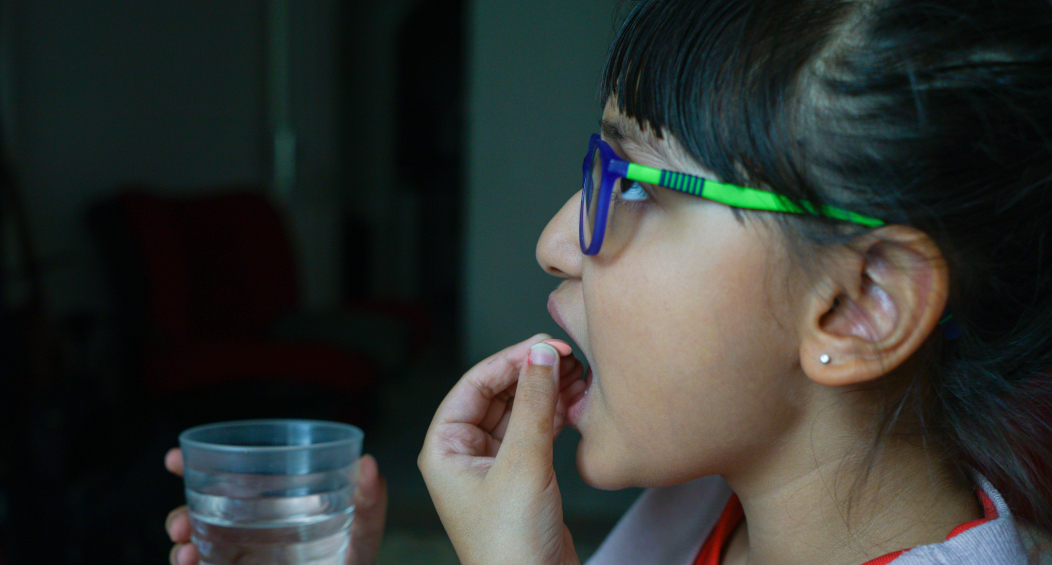Oppositional defiant disorder (ODD) is one of those conditions that is often mislabeled. ODD is a behavior disorder characterized by uncooperative, defiant, negativistic, and annoying behaviors towards parents, teachers and other authority figures. It most commonly shows up in the preschool years.
We may find that our children are “oppositional” or “defiant” at times, but it doesn’t necessarily mean that they have ODD or meet the clinical criteria for this mental health condition.
That said, if you feel like your child is more oppositional than most, it’s worth talking to his doctor about it. I’ve put together some questions to consider that may help guide your conversation.
Questions to Ask When Considering Oppositional Defiant Disorder (ODD) in Kids
1. What does this behavior look like?
When your child is being oppositional, think about what it looks like. There should be a pattern of angry, defiant, vindictive and hostile behavior. This could manifest as constant arguing, refusal to do things, purposely annoying others, and being relentlessly angry.
2. How often is this behavior happening?
This is a key factor to consider when identifying ODD. All children will occasionally exhibit the above behaviors. But children with true ODD will do it so much that it interferes with their daily lives. It will damage their relationships with others. They will have behavioral problems in school.
3. What is my child’s overall temperament?
How would you describe your child’s overall temperament? Is he overall happy but has occasional moments of defiance? Or is he angry all of the time? Kids with ODD will be perpetually disagreeable. Sure, there are kids who are strong-willed and kids who have to have things their way all of the time. But if they also have many kind moments, they probably don’t have ODD. I’m not saying that parenting these children isn’t challenging, but it’s not likely that they’ll fit the clinical criteria for the diagnosis.
4. Does my child have other conditions that could be driving this behavior?
Sometimes children have other conditions that can drive oppositional behavior, such as anxiety and ADHD. For instance, some kids have anxiety that manifests as separation anxiety. If we put that child in a time out on a different floor, the time out is going to intensify the anxiety. If she delays the time out by putting up an epic fight, it will decrease her anxiety.
Similarly, many kids with ADHD are impulsive. They say or do things without stopping and thinking, “Maybe I shouldn’t do the thing that just popped in my head.” They’ll grab toys from another kid without asking or push kids when they say something unkind. This doesn’t necessarily mean that they have a secondary ODD diagnosis. They may need a different treatment for their ADHD, such as behavioral interventions or medication.
In both of these scenarios, there are other conditions driving the behavior. Therefore, if we treat the underlying condition, we may be able to prevent the oppositional behavior from happening in the first place.
5. When is the behavior happening?
Is there a certain time of day or scenario in which this behavior is happening? When they first wake up? Only during sports? Whenever he does homework? I recommend tracking it so that you have data to give your doctor. There may not be a trend, but if there is, it can be incredibly helpful to help sort things out and identify potential next steps.
Managing a child with oppositional behavior or ODD can be exhausting and frustrating for all involved. Kids and parents may get to the point where they don’t want to spend any time together. Parents may second guess everything they’re doing. Our role as child psychologists is to help repair that parent-child relationship and to positively impact family functioning. If she does have ODD, it’s important to begin behavioral interventions sooner rather than later because having ODD puts her at risk for other problems, such as depression, anxiety, or substance abuse.
If you’ve answered these questions and are concerned about your child’s behavior, I recommend speaking with her doctor about it. He or she may recommend a referral to a child psychologist.
To learn more about our Division of Behavioral Medicine and Clinical Psychology, please call 513-636-4336 or visit our web site.





